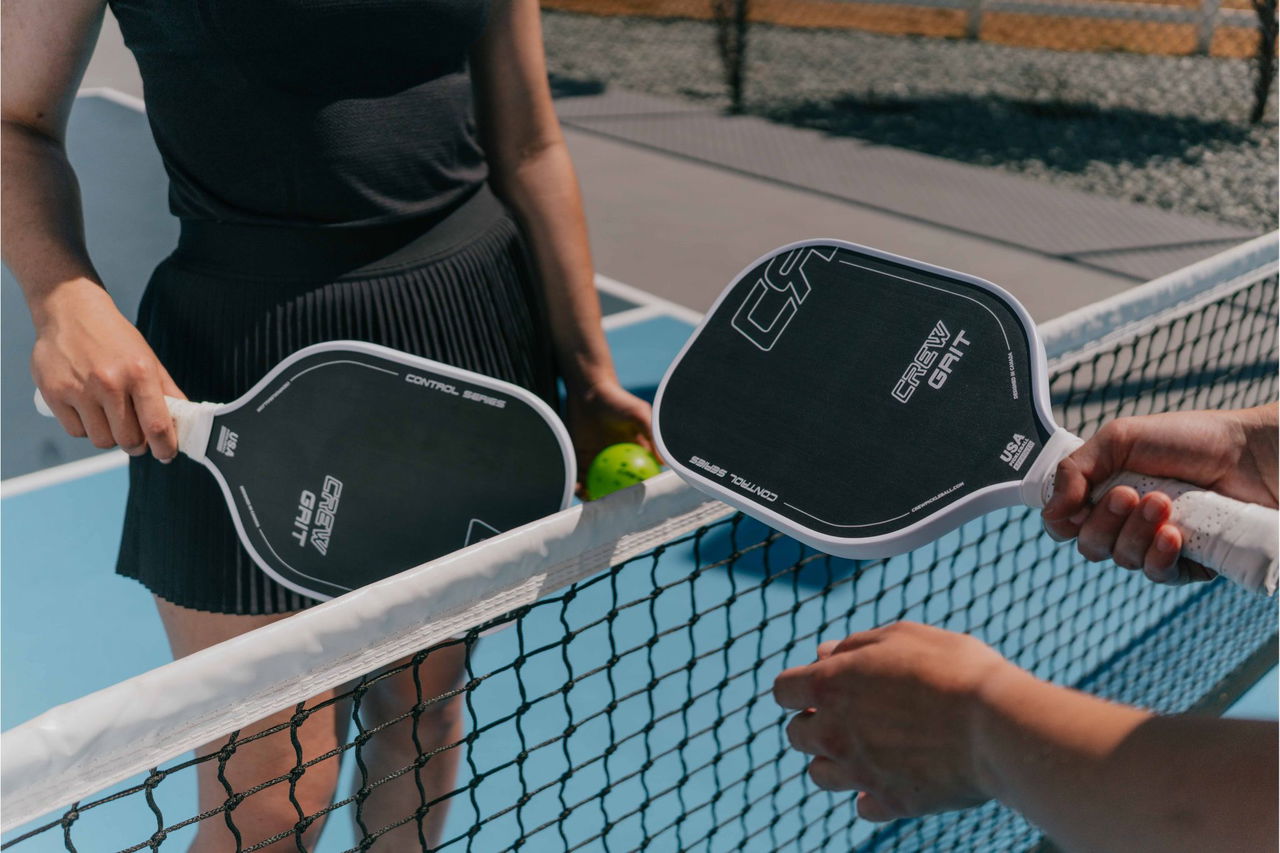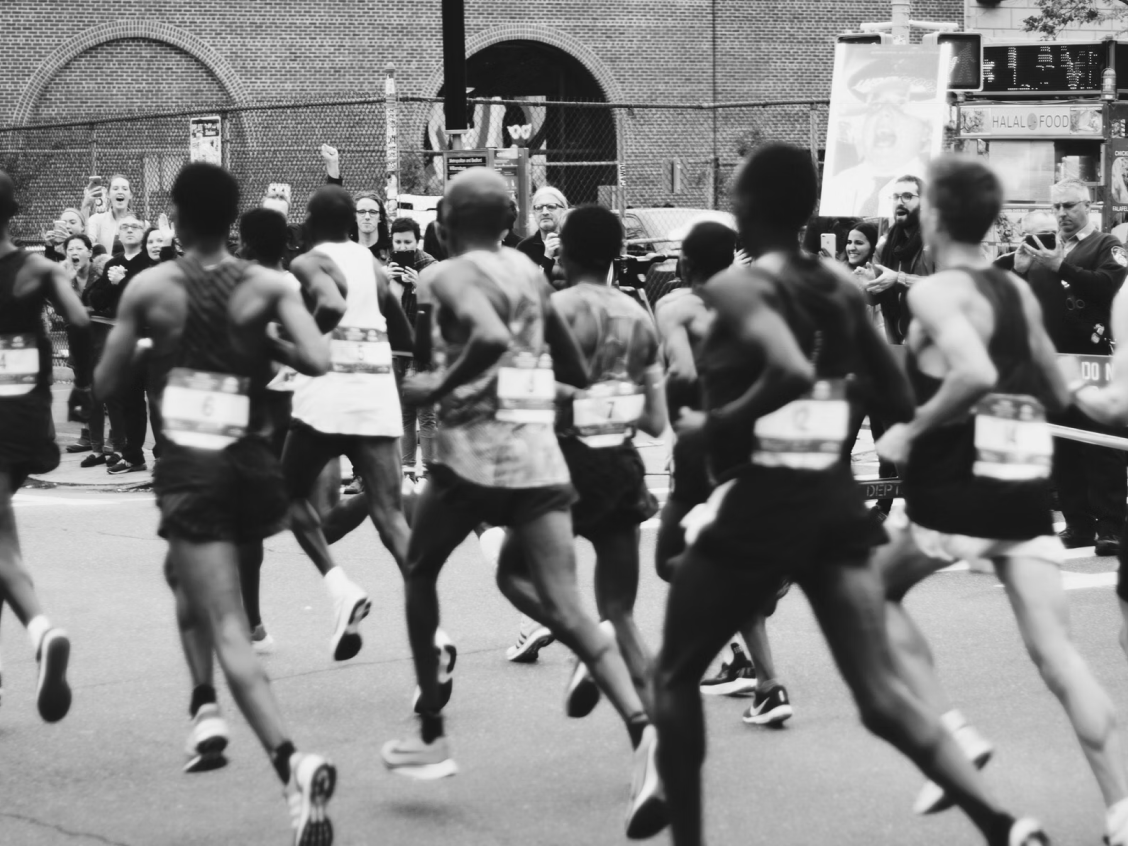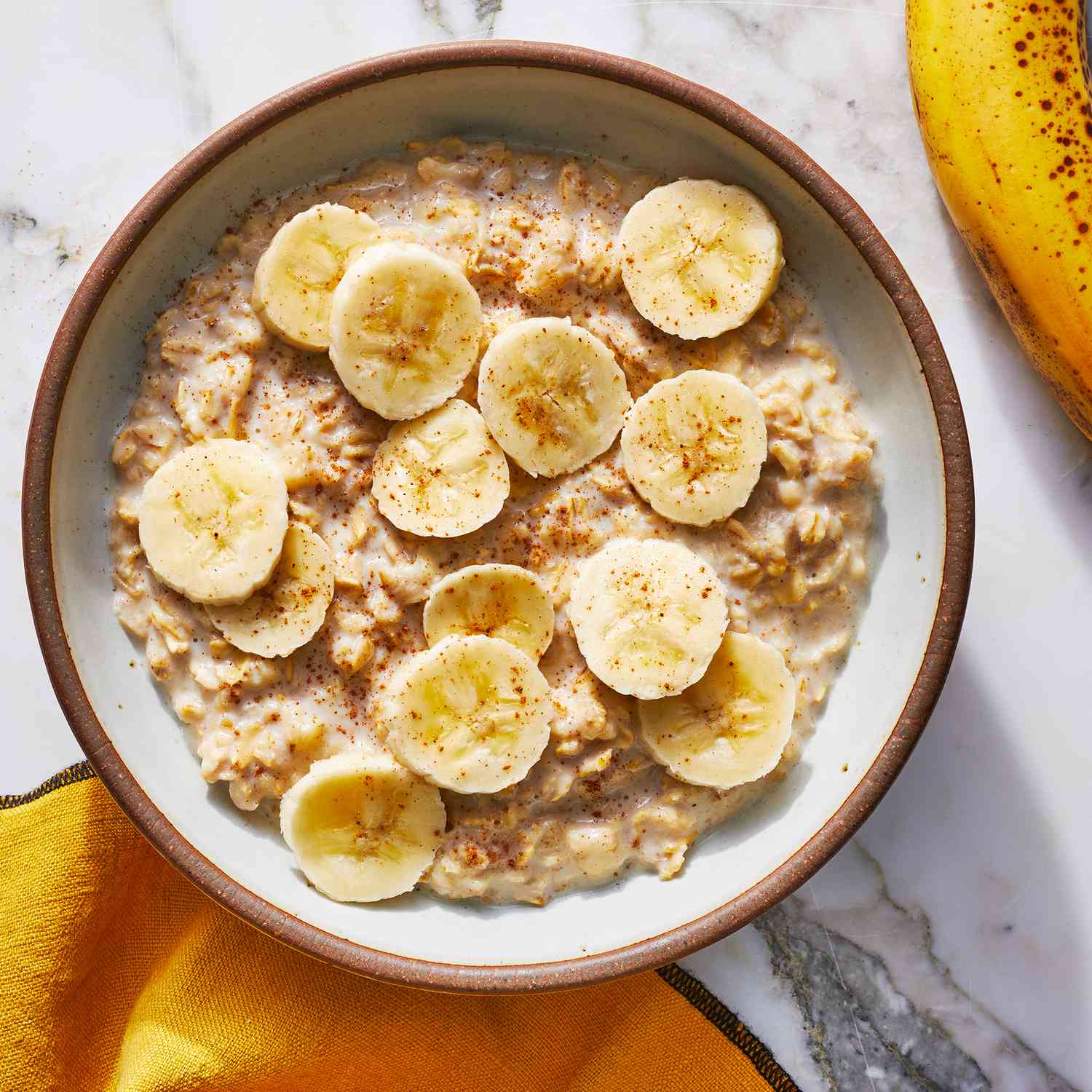Pickleball Guide
Fuel Your Game: The Ultimate Guide to Pre- and Post-Pickleball Nutrition
The right equipment is only part of the game—what you eat before and after hitting the court can make a big difference in your energy, performance, and recovery. Here’s everything you need to know about fueling up and cooling down with the best nutrition strategies for pickleball.
6 min. read

Written by
Carter Clark
Published
Nov 2 2024
1. Why Nutrition Matters for Pickleball Players
Just like any sport, your body needs fuel to perform its best. The right nutrition provides energy, supports endurance, and helps prevent injuries by supporting muscle recovery. While skill and practice play essential roles, proper nutrition can be the boost you need to stay competitive and feel great.

The right fueling strategy is essential for running a competitive marathon. Why are you discounting the importance of fueling before and after playing pickleball?
2. The Best Pre-Game Nutrition for Pickleball
Carbohydrates for Pickleball Energy
Carbs are your body’s preferred energy source during high-intensity activities like pickleball. Consuming a moderate amount of carbs before playing gives your muscles quick-access fuel, which keeps you moving and reacting quickly on the court. Some great pre-game carb sources include:
Whole-grain toast with a small amount of honey
Oatmeal topped with a banana
Sweet potatoes or brown rice

Pre-Game Meal Timing and Digestion Tips
Timing is everything with pre-game meals. Eating 1.5 to 2 hours before you play gives your body time to digest and convert food into energy without weighing you down. Avoid large portions or high-fat foods right before you play, as these can slow digestion and leave you feeling sluggish.
Choosing the Right Foods for a Light but Energizing Meal
Looking for a light meal that packs energy without heaviness? Try easy-to-digest combinations like:
Greek yogurt with berries and a sprinkle of granola
Smoothie with banana, protein powder, and a small handful of oats
Rice cakes with almond butter and apple slices
These options will give you sustained energy without feeling weighed down.
3. Vitamins and Minerals for Optimal Pickleball Performance
Essential Nutrients for Pickleball Players
Key vitamins and minerals support energy production, muscle function, and overall performance:
Vitamin C and E: These vitamins act as antioxidants, protecting your muscles from damage.
B Vitamins: Help convert food into energy.
Magnesium and Potassium: Important for muscle function and preventing cramps.
Essential Nutrients for Pickleball Players
Foods like leafy greens, nuts, bananas, and berries are nutrient powerhouses that fuel your body for top performance. Adding these foods to your diet regularly will give you the essential nutrients your body needs to perform well and recover quickly.
4. Hydration and Electrolytes: Staying Refreshed on the Court
The Role of Hydration in Pickleball Performance
Hydration keeps you energized and helps prevent fatigue and cramping. A good rule of thumb is to drink water consistently throughout the day and aim for about 16 ounces (2 cups) of water 1-2 hours before your game. During play, a few sips every 15-20 minutes will help maintain your hydration level.
Electrolytes for Pickleball Endurance and Recovery
Electrolytes, especially sodium and potassium, help regulate fluid balance and muscle contractions. When you sweat, you lose these minerals, so replenishing them is key to staying sharp on the court. Look for sports drinks or natural electrolyte sources like coconut water, bananas, and oranges.
5. Post-Game Nutrition: Recover Faster and Play Longer
Post-Pickleball Carbs and Protein for Recovery
After playing, refuel with a balance of carbs and protein. The carbs restore glycogen (energy) stores, while protein helps repair muscle tissue. Aim for a 3:1 or 4:1 carb-to-protein ratio within 30-60 minutes of finishing. Some easy post-game options include:
Turkey and cheese wrap with a piece of fruit
Chocolate milk and a banana
Greek yogurt with honey and berries
Foods to Reduce Inflammation and Soreness
Certain foods can reduce inflammation and speed up recovery, like:
Tart cherries or cherry juice: Known to reduce muscle soreness.
Salmon: High in omega-3s, which are anti-inflammatory.
Turmeric and ginger: These spices have natural anti-inflammatory properties.
Including these foods in your diet can help you recover faster and get back on the court sooner.
6. Avoiding Common Nutrition Mistakes for Pickleball Players
Even experienced players can fall into nutrition pitfalls. Here are some common mistakes to watch out for:
Skipping Carbs: Carbs are essential for energy. Avoid cutting them out completely.
Eating Heavy Meals Before Playing: Keep pre-game meals light and easy to digest to avoid sluggishness.
Forgetting to Rehydrate: Hydration doesn’t stop when you step off the court—keep drinking water post-game to prevent cramps and fatigue.
If you often feel drained, it may be a sign you’re under-fueling or need to adjust your pre- and post-game meals.
7. Final Tips for Pickleball Nutrition Success
Plan Ahead: Pre-pack meals and snacks so you’re not scrambling to find something suitable last minute.
Balance Energy and Recovery: Fuel properly before and after each game for optimal performance and recovery.
Listen to Your Body: Everyone’s body responds differently to food, so take note of what makes you feel your best on and off the court.
With the right fuel, you’ll be ready to take on the competition, recover faster, and keep improving your game. Whether you're a weekend warrior or a daily player, these nutrition strategies will keep you energized and ready for whatever pickleball throws your way.
With the right fuel, you’ll be ready to take oStart implementing these tips and take your game to the next level! At Crew Pickleball, we’re all about empowering you to play your best—both with the right paddle and the right fuel.

Carter Clark
@Carter Clark
